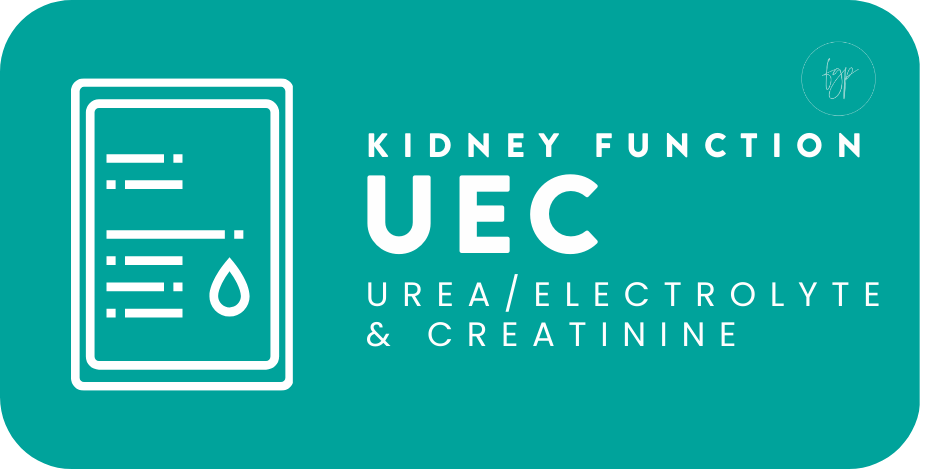What is going on?
Your lab tests

Kidney Function
Measures kidney performance and electrolyte balance
Your result is raised
When Levels are High
Kidney function decline is indicated by rising creatinine and urea levels, along with a decreasing eGFR, which signals reduced kidney ability to filter waste from the blood. Also worse kidney function can be seen in dehydration, kidney disease, high protein intake.
Your result is low
When Levels are Low
Chronic kidney disease, malnutrition, liver disease.
A deeper dive
For those looking to delve deeper and gain a greater understanding of their results and their practical applications.
What your kidney function means?
Creatinine - Part of kidney function tests, and it can decrease with muscle wasting. Low creatinine levels can indicate reduced muscle mass, which may be seen in malnutrition or certain diseases affecting muscle tissue.
As kidney function declines, you'll often see an increase in creatinine and urea levels, along with a decrease in eGFR (estimated glomerular filtration rate).
Creatinine is a waste product produced by muscle metabolism, and is filtered out of the blood by the kidneys. If kidney function decreases, creatinine builds up in the blood.
Urea is another waste product removed by the kidneys. Elevated levels of urea in the blood can indicate that the kidneys are not filtering it out properly, which is often seen in kidney disease.
eGFR (estimated glomerular filtration rate) is a measure of kidney function that estimates how well the kidneys are filtering waste from the blood. A decrease in eGFR suggests a decline in kidney function. The eGFR is based on factors like age, sex, and serum creatinine levels. An eGFR below 60 mL/min/1.73 m² for three months or more can be a sign of chronic kidney disease (CKD).
These trends help to monitor the progression of kidney disease. If creatinine and urea levels are rising, and eGFR is falling, it indicates that the kidneys are progressively losing their ability to filter waste effectively.
Read more about your blood pressure and your urine ACR – other aspects of kidney health
Your kidneys play a key role in managing blood pressure and filtering waste from your body. High blood pressure can damage the kidneys over time, and early signs of kidney stress often show up in the urine. One important test is the urine ACR (Albumin-to-Creatinine Ratio) — this checks for tiny amounts of protein leaking into the urine, which can be an early marker of kidney damage. Keeping your blood pressure in a healthy range and checking your urine ACR regularly can help catch issues early and protect your long-term kidney health

